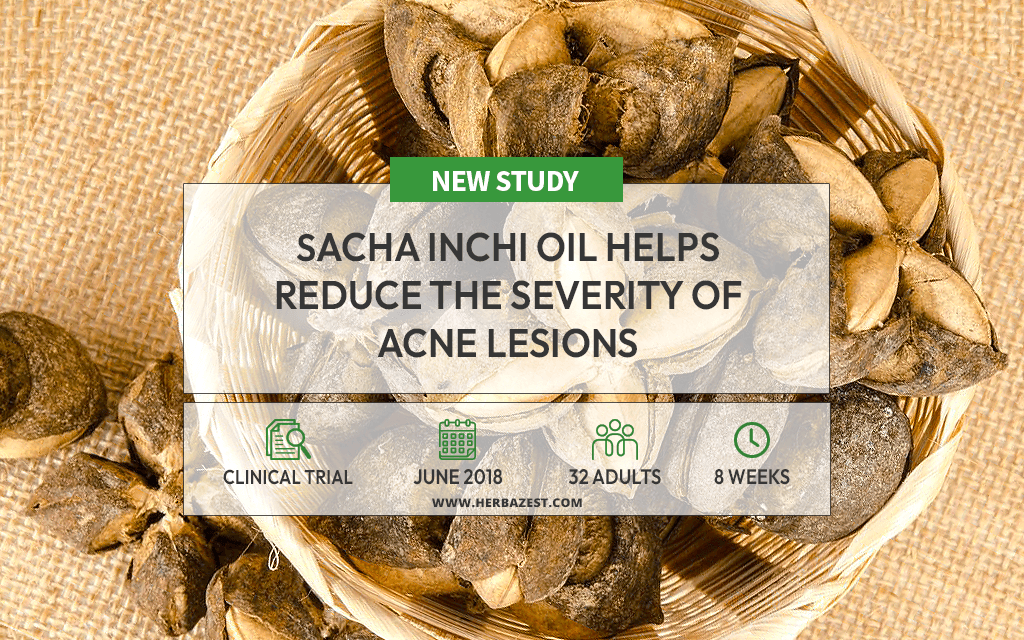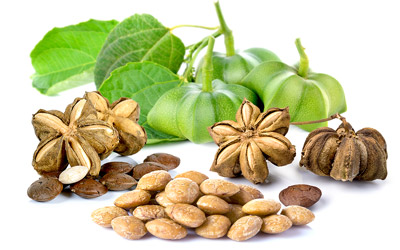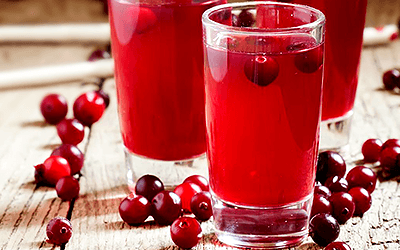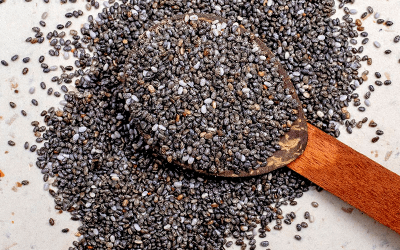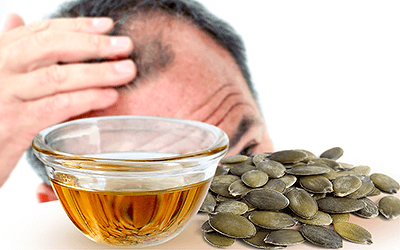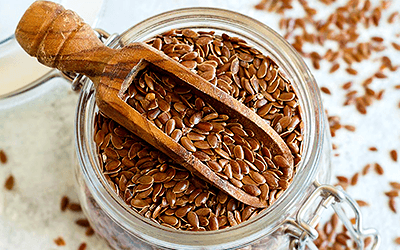Sacha inchi's seeds have been gradually gaining worldwide attention in recent years. The seeds' most impressive attributes are their high levels of polyunsaturated fatty acids, mainly omegas 3, 6, and 9, as well as an outstanding protein content. They have been praised for their beneficial effects on building muscle mass and promoting heart health.1,2
While acne vulgaris, or simply acne, is mainly associated with teenagers, it can persist into adulthood. The condition causes lesions and cysts, whose severity is generally graded on a 1-4 scale, from mild to severe.3 Typical treatments - such as topical antibiotics like erythromycin - are not always successful and may cause side effects.
As such, driven by the need to find effective, natural options, researchers aimed to evaluate the efficacy and safety of sacha inchi for treating acne.
The Study
This 2018 randomized, controlled parallel dietary intervention study was conducted by researchers from the School of Anti-Aging and Regenerative Medicine from the Mae Fah Luang University in Bangkok, Thailand.
It consisted of recruiting 32 participants suffering from acne, with global severity grades ranging from 1 to 4. Participants were divided into two groups: the first one receiving oral sacha inchi oil extraction and oral erythromycin and the second one receiving oral erythromycin alone.
The length of the study was eight weeks, with three follow-ups: after the 4th, 8th, and 12th week of intervention. Acne status was recorded before and throughout the study.
The Results
At the 4th week of follow-up, researchers already observed a substantial decrease in inflammatory and non-inflammatory lesions as well as acne severity scores in the sacha inchi oil group. There were no observed side effects.
Improvements were also reported subjectively by participants.
What Does this Mean?
This is the first study that revealed the potential of sacha inchi for treating acne. This is good news for acne sufferers since prescription acne treatment methods have limitations, including being ineffective for non-inflammatory acne lesions. They may increase the risk of side effects, like skin redness, burning, or dryness.
Sacha inchi's newly discovered potential to reduce the severity of both inflammatory and non-inflammatory acne lesions without causing adverse reactions can help formulate more effective and safe acne treatments.
Further studies are recommended to explore sacha inchi's effects on acne and other skin conditions.
Other herbs that have shown beneficial for acne include calendula, agrimony, chamomile, and St. John's wort.4
Sources
- IEEE Xplore, Comparative study of oral administration of Sacha Inchi oil extraction with erythromycin versus oral erythromycin on the treatment of Acne Vulgaris, 2018
BMJ Clinical Evidence. (2011). Acne vulgaris. Retrieved September 9, 2020 from https://www.ncbi.nlm.nih.gov/pmc/articles/PMC3275168/
Footnotes:
- Toxicology Mechanisms and Methods. (2018). Nitrogen balance after a single oral consumption of sacha inchi (Plukenetia volúbilis L.) protein compared to soy protein: a randomized study in humans. Retrieved August 27, 2020 from https://www.ncbi.nlm.nih.gov/pmc/articles/PMC5955778/
- Food and Function. (2018). Carbohydrate metabolism and gene expression of sirtuin 1 in healthy subjects after Sacha inchi oil supplementation: a randomized trial. Retrieved September 9, 2020 from https://pubs.rsc.org/en/content/articlelanding/2018/fo/c7fo01956d#!divAbstract
- Indian Journal of Dermatology, Venereology, and Leprology. (2009). Scoring systems in acne vulgaris. Retrieved September 9, 2020 from http://www.bioline.org.br/pdf?dv09103
- Jundishapur Journal of Microbiology. (2015). Medicinal Plants for the Treatment of Acne Vulgaris: A Review of Recents Evidences. Retrieved September 9, 2020 from https://www.ncbi.nlm.nih.gov/pmc/articles/PMC4740760/
